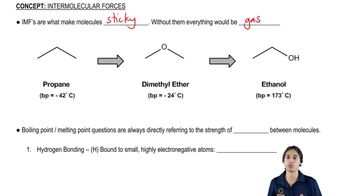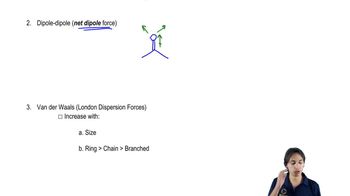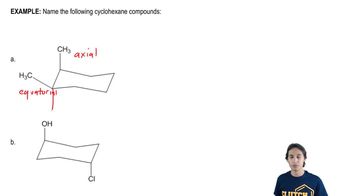Show the ionic compound that you would expect to form between the given metal and nonmetal. Label the charges on each species.
(a) Al and F
 Verified step by step guidance
Verified step by step guidance Verified video answer for a similar problem:
Verified video answer for a similar problem:



 11:33m
11:33mMaster Differences between ionic, polar and covalent bonds with a bite sized video explanation from Johnny
Start learning